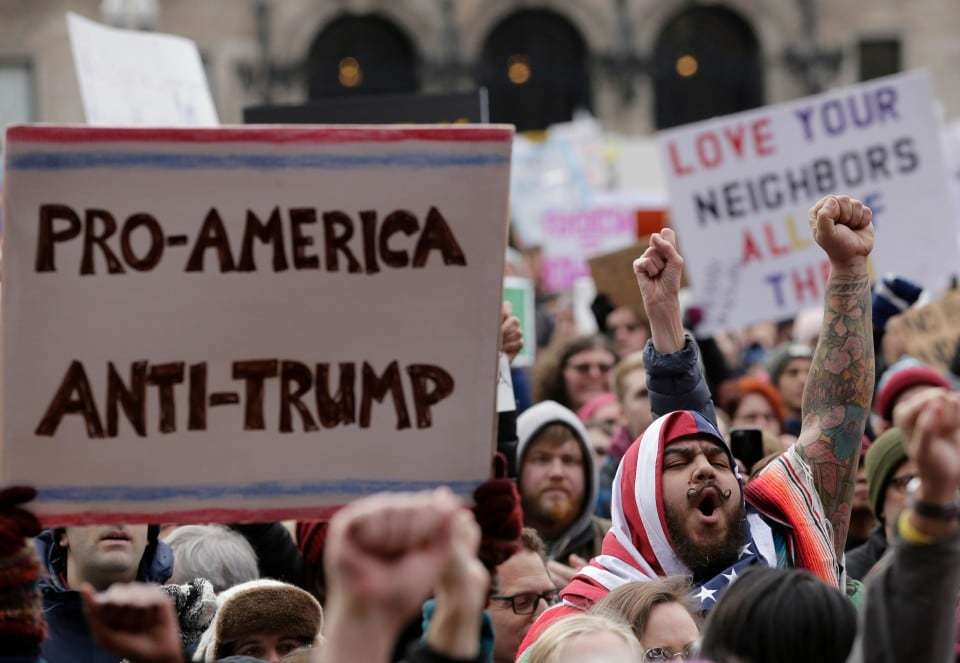The Volokh Conspiracy
Mostly law professors | Sometimes contrarian | Often libertarian | Always independent
President Trump may hire 'only the best people' but he did not rely upon them to draft and implement his latest executive order

During the campaign, then-candidate Trump told The Post's Robert Costa: "I'm going to surround myself only with the best and most serious people. . . . We want top of the line professionals." Whether or not this was true at the time, it is hard to believe that this was the Trump administration's modus operandi in developing this week's controversial executive order on refugees and others from specified countries. While some good folks have been tapped for important legal positions in the administration, it does not appear that they are being utilized - and that's a problem.
Whatever one thinks of the underlying policy, the degree of administrative incompetence in its execution is jaw-dropping. Like Orin below, I think it's worth quoting this Benjamin Wittes post from the Lawfare blog:
The malevolence of President Trump's Executive Order on visas and refugees is mitigated chiefly-and perhaps only-by the astonishing incompetence of its drafting and construction.
NBC is reporting that the document was not reviewed by DHS, the Justice Department, the State Department, or the Department of Defense, and that National Security Council lawyers were prevented from evaluating it. Moreover, the New York Times writes that Customs and Border Protection and U.S. Citizen and Immigration Services, the agencies tasked with carrying out the policy, were only given a briefing call while Trump was actually signing the order itself. Yesterday, the Department of Justice gave a "no comment" when asked whether the Office of Legal Counsel had reviewed Trump's executive orders-including the order at hand. (OLC normally reviews every executive order.)
This order reads to me, frankly, as though it was not reviewed by competent counsel at all.
Think about that for a moment. An EO that is ostensibly issued for the purpose of protecting national security was not properly vetted, nor did anyone make any meaningful effort to ensure that those government officials tasked with executing the administration's policy understood what it was they were doing. Indeed, as drafted, the EO didn't even cite the right provisions in federal law. In the words of Charles L. Black Jr., in these actions "the curves of callousness and stupidity intersect at their respective maxima." (Hat tip: Walter Dellinger)
Under normal circumstances, I believe that the policy embodied in the Trump EO is lawful under existing precedent and would survive judicial review. That is, I believe the executive branch may decide to identify specific countries from which immigrants and others seeking entry into the country must receive "extreme vetting" and that the President may order a suspension of refugees from particular places (as Obama did with Iraq in 2011). Despite some of the President's comments during the campaign about wanting a "Muslim ban," this EO does not come anywhere close to effectuating such a ban, as it largely focuses on countries that were previously identified as sources of potential terror threats.
I stress "under normal circumstances" because these are not normal circumstances. The cavalier and reckless manner in which this specific EO was developed and implemented will likely give judges pause - and with good reason. Courts typically give a degree of deference to executive branch actions under the assumption that polices are implemented after serious consideration of relevant legal and policy questions. Indeed, the more serious the government interest allegedly being served, the more serious one expects the government's internal review to be (unless, of course, there are exigent circumstances necessitating immediate action, but that was not the case here).
When Justice Department attorneys go into court to defend the policy, they will not be able to maintain that this policy reflects careful review of the relevant security concerns or that administration lawyers gave due consideration to potential objections and relevant legal or constitutional constraints on the executive branch's conduct. They won't be able to say those things because they are not true - and judges will notice. Issuing orders that can upend people's lives without conducting the most basic review is practically the definition of "arbitrary and capricious" government action. To quote Wittes again:"it is most emphatically not good news to have a White House that just makes decisions with no serious thought or interagency input into what those decisions might mean. In fact, it's really dangerous." This is not how you "make America great again."
Here's some consolation for Trump's critics and the loyal opposition. If the drafting and implementation of this EO is any indication of how the Trump administration plans to conduct its affairs, this is good news for those who wish to oppose administration policy. Many of the things the Trump administration wishes to do to reverse Obama administration policies, particularly those embodied in duly promulgated regulations, will require careful and patient lawyering. The failure to properly vet and flyspeck administrative actions will leave them vulnerable to legal challenge. This may be small consolation to those who may be affected by the administration's actions in the meantime, but it is something to keep in mind.


Show Comments (0)